Resources
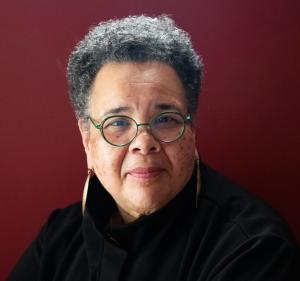
In the family waiting room at Abington Hospital, a nurse delivered news to my father and me. She informed us that my mother’s second surgery in four days had been a success. After her announcement, the nurse seemed confused when my father did not react. My father’s mental condition was not evident to most people. His dementia did not allow him to react. I thanked the nurse, patted my dad on his hand, then went out into the hallway. About three steps out of the room I collapsed against the wall.“Are you okay?” asked a stranger. I was leaning, dazed with eyes turned down at the floor, trying to decide if I was going to cry or keep holding back the tidal wave of tears. Without meeting the caring stranger’s eyes, I replied, “Yes.”Taking me at my word, the man dressed in blue scrubs and black sneakers continued down the corridor and disappeared through the double doors.“Are you okay?” I found it quite easy to lie. In the moment, I did not know what I needed, but I knew I was not okay. I knew I needed help, but I was the one who was the help provider, the caregiver, the only child. I was a kind of tired I had never been.During their last years, both of my parents experienced dramatic health issues. I cared for both, first in their home, then I moved them to my house. While caregiving, I experienced a kind of weariness that I had never before felt. I was on faculty trying to meet all the obligations of a tenured appointment while navigating the doctor appointments for two elderly people. I was tending to household chores for two homes, writing a second book, and accepting consultations to make extra money. I was worn-out. In retrospect, I am surprised exhaustion did not debilitate me into my own sickness or death. When I was a child, I was raised to be helpful. In elementary school I was proud when my teacher reported to my parents how helpful I was in class to her or to other students. In our home, being helpful to our neighbors and church was a glad obligation. My brother and I were taught that helping would provide meaning and purpose to our lives. Mahlia Jackson, part of the soundtrack of our household, reinforced this faith stance with her rendition of “If I Could Help Somebody.” She sang, “…. then my living will not be in vain.” My parents made it quite clear that the strength and health of our church and neighborhood depended upon our interconnection, interdependence and the support provided by those who were able to help. Our family was a helping family – capable of being of service. Lending help was a bedrock value of our family’s life. This communal ethic of helpfulness was now stretched so thin it was harming me. By the time I was leaning against the wall in the hospital corridor, our family’s code of helpfulness had deteriorated into my collapse. In retrospect, I had befriended my fatigue. On the few days I did not feel tired I wondered why. As I write today, I thank the man in the hospital for inquiring about my state of being. I can only imagine what kind of help I might have received if I had answered truthfully and told him, “No, I am not okay.” Each summer Wabash Center hosts groups of colleagues. Most arrive exhausted. I suspect many colleagues are the kind of exhausted I was in the hospital corridor. Over the days we are convened, my staff and I watch as participants rest in clean beds, eat balanced meals, hydrate, distance themselves from agitations, and engage in heaping portions of play and fun. We witness the exhausted slow their pace and refocus. By day three or four we can see that clinched jaws have loosened, furrowed eyebrows have unstacked, and previously shallow breathing has deepened. The fatigue gives way to vitality. People unfurl, unknot, unwind. We watch as colleagues who arrived vacant and mere shadows of themselves return to themselves. I am glad Wabash can provide a space for renewal and restoration – at least a little bit.My concern is that when colleagues return to their institutions they return to the patterns of overwork, grind, fatigue and exhaustion. They use the experience of our cohorts as an oasis then return to the desert journey of the academy. Exhaustion should not be the norm for faculty. I suspect that most colleagues have not taken the time to get to know the kind of tired they are living with and the ways their tired is limiting their teaching, dangerous for their health and welfare, potentially death dealing for themselves and their families. My concern is colleagues answer “I am okay”—even when they are not. ReflectionPlease take time to check in and ask yourself:Do you know the warning signs of burn out, depression, and high anxiety?How will you take advantage of the services of therapists, clergy, spiritual directors, or coaches?How will you create routines to help you manage your work, so fatigue is not standard, not normative?What help you will get for yourself? What help will you be to yourself? What routines, rites, rituals, habits and practices will bring work/life balance?Are you okay?
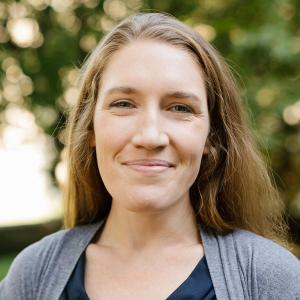
For the past several years, I’ve gotten obsessed with Orpah: Naomi’s other Moabite daughter-in-law in the biblical story of Ruth.[1] Often overshadowed by the story’s eponymous hero, Orpah can be read as Ruth’s opposite. When Ruth leaves everything to follow Naomi, Orpah returns to her people and her land. Ruth becomes an Israelite, Orpah remains a Moabite. I’ve been interested in Orpah ever since reading Laura Donaldson’s piece, “The Sign of Orpah: Reading Ruth through Native Eyes.”[2] Donaldson urges us to rethink this character’s often-maligned decision to remain a Moabite in light of contemporary assimilation pressures and erased cultures. What does it mean, she asks, to read Orpah’s choice as brave instead of bad? My course, The Bible and Ethics, encourages students to get curious about Orpah’s story, to relate to her point of view, and to understand her choice to return home as intelligible, even heroic. This encouragement is part of a larger effort to humanize biblical characters that are often ignored or disparaged either within a given biblical story or in the history of its interpretation. If we can get curious about people less visible in a powerful text, the theory goes, it might prime us to see humanity more acutely elsewhere. The idea is to notice beauty, complexity, and pain in individuals and communities we have learned to ignore. But this kind of reading and seeing is difficult. Getting curious about Orpah is particularly challenging both because we have learned to overlook her and because her biblical mentions are scant. Sometimes my students don’t see the point. Why consider the story of Orpah when we have the compelling duo of Ruth and Naomi? Why follow Michal when we can think about her captivating husband, David? Why imagine the perspective of Lot’s wife or of the children who die in the smoking ruins of Sodom and Jericho when Abraham, Lot himself, and Joshua are demanding our attention? The pull of the biblical authors’ own attention is strong. Following the stories of Orpah, Michal, Lot’s wife, or a child in Sodom is like sitting in a darkened theater and trying to keep track of a character who has left the stage. Maybe they never walked on stage to begin with. Either way, it would be easier to just keep watching the show. Fortunately, we have examples of scholars and poets who have taken up the challenge of reading for characters whose stories have been lost, erased, or never written. Saidiya Hartman’s “critical fabulation”[3] and Wilda Gafney’s “Womanist Midrash”[4] offer cues and strategies to grapple with absence and to shine a light on individuals – fictional and actual, ancient and modern – whose presence we ignore. I want to be clear that this way of reading rarely makes converts. And that’s not really the point. Students, by and large, remain committed to our biblical protagonists and find accessing curiosity and empathy for marginal characters quite difficult. Poetry helps. Poetic re-imaginings of biblical stories are some of the most potent teaching tools I have both because they are pithy enough to be experienced collectively during a class meeting and because they invite us to explore the emotional quality of this kind of reading. Natalie Diaz’s “Of Course She Looked Back”[5] is a great example. Diaz’s poem – affectingly unpacked by Pádraig Ó Tuama in his Poetry Unbound podcast episode[6] – witnesses the destruction of Sodom from the perspective of Lot’s wife. What I love about this poem is where it begins. Of course Lot’s wife looked back at the ruination of her adopted home, the poet declares. In fact, “you would have, too.” As she fades from the biblical story, together with the silenced screams of Sodom’s children, Lot’s wife asks us to imagine ourselves as among the forgotten. Notes & Bibliography[1] https://www.sefaria.org/Ruth.1?lang=en[2] https://onlinelibrary.wiley.com/doi/10.1002/9780470775080.ch10[3] https://muse.jhu.edu/article/241115[4] https://www.wjkbooks.com/Products/066423903X/womanist-midrash-volume-1.aspx[5] https://onbeing.org/poetry/of-course-she-looked-back/[6] https://onbeing.org/programs/natalie-diaz-of-course-she-looked-back/

My last first day of class – as a student – was fifteen years ago. But here I am again, somehow back for more.I could make this into one of those “how did I get here?” blogs, and that might be interesting. (The short version is that you should sign up for Wabash’s Breaking the Academic Mold writing workshop if you get the chance). But the how of it all is less interesting than the why. The why of this new first day of class, fifteen years after I thought I was finished, is that I discovered something I really wanted to learn, and I knew I couldn’t teach myself. Since you’ve found your way to a Wabash Center blog post, there’s a good chance you’re pretty great at teaching new things to yourself and to others, and there’s a good chance you’re a really accomplished learner, too. We probably have that in common. I’ve taught myself lots of things over the years, from Italian to citation formats to how to caption videos on the LMS to how to write a tenure dossier. We’ve all learned things without a teacher. But after spending a week in the Minnesota woods with the fantastic teachers Wabash brought to that writing workshop, I knew I needed to learn more, and I knew I couldn’t do it alone. That’s how I ended up here, on my first day of class in an MFA program in nonfiction. It’s my sabbatical year – a precious and rarifying privilege, to be sure—and I’m spending it trying to learn how to be a writer. I’ve written lots of stuff, of course, just like you have, but I want to learn the craft of writing. And for that I need teachers. It’s a wild and unexpected thing, if I’m being honest – the experience of having a teacher. I had forgotten, after a decade with my name on the syllabus, what it’s like to be a student. All the old anxieties showed up like the faces you’d hoped to avoid at your high school reunion. Will I be smart enough? Will I come across as too eager, or too entitled, or too much of something else, or—worst of all—will I come across as not enough? Does she really mean double-spaced with 12-point font? Do I really have to print a copy? What should I wear?But I don’t want to write about the anxieties; I don’t want to give those old faces the satisfaction. I want to write about the way euphoria took me by surprise. After all these years, I had forgotten what it means to show up to learn a thing and be greeted by someone ready to teach you. I had not remembered what it’s like to encounter an expert in a classroom, someone hand-picked and specially trained to help you learn. Even as someone in the education business, I had somehow lost track of the feeling of wanting to learn something and having someone appear, ready to teach it to me.I’m remembering now that having teachers is magical. It’s magical to learn from someone who has spent a lifetime preparing to teach you. It’s magical to place yourself in the care of someone who’s ready to help. It’s magical to have a guide, to meet a mentor, to learn in community. The experience of having a teacher again, after all these years, is reminding me that that’s who I am to my students. I suppose that after so many intro classes and so many seminars, I had slipped into thinking about my role in many other ways than magical. I’ve thought of myself as an institutional intermediary, as an enforcer of policies and offerer of services, as a facilitator or orchestra conductor, and even sometimes as a “sage on stage,” dispensing arcana on demand. But now, back on the other side of things and remembering what it’s like to trust someone with my own formation again, I’m noticing the ways my students have told me what I’ve meant to them. I’m noticing how they describe me—and my colleagues—as transformative and foundational figures in their lives. I have tended to aw-shucks these comments away, reminding students of their roles in their own formation. But now, having teachers again, I think I understand better what my students mean. It’s still just the first day of class. All the frustrating parts of having a teacher are still ahead, and I’m sure there will be plenty of opportunities for realizing and remembering the ways in which I can be a frustrating teacher, too. There will be time for all of that, and more that I can’t anticipate. But for now, I’m reveling—I’m exulting and I’m nearly vibrating with excitement—at the magic of having teachers.
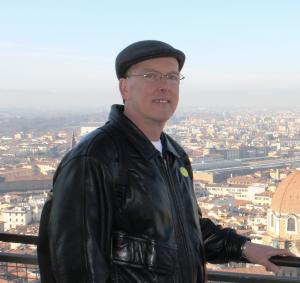
“What are you working on these days?” the President asked. The setting was a professional meeting. I was on the Board of Directors of my professional society, and I was at my first meeting. I discovered that we begin each meeting with this same question. Everyone went around the room to talk about the book, the essay, the project they were working on. Then, it was my turn. I changed the focus away from my own work to the work I did for our professional society. I was brief, and then the person next to me picked up the question.The others at the table didn’t know me; didn’t know the anxiety I was feeling. Given all the work that these professors had published, many I had read, a few I regarded as superstars, I wondered what I was doing in this room. How did I get on this board in the first place? I had no brilliant book that is a must-read for anyone in the field. I had not garnered a prestigious NEH grant worth thousands to my institution. I was just one of the worker bees – chairing a committee where people often ask, “What is it your committee does?”I am a poor kid from the projects who went to a small, little-known church-related college with an open admissions process, not Harvard (although I did live just up the street – a “townie” I am told, often with an air of condescension). My neighborhood was where the Harvard students would come when they wanted to “give back” to feel good about themselves; noblesse oblige I later learned. I was a charity case; I needed their help to succeed – at least that’s what I was told.Yet there I was, sitting with them steering the future of the academy, or at least our part in it. Who was I to be giving suggestions? What the hell did I know? So, at first, I didn’t say much for fear that I would be found out for the imposter I was.I remember completing coursework in grad school and having an obligatory meeting with my advisor. Apparently, the department had conversations about me and my performance to date. My Ivy-League-bred advisor began the conversation, “In truth, we were not too sure what we would be getting with you given your background. We decided to take a chance, and we have been pleased with your performance.” Did they really think that the preparation I received in my previous schools was that poor? I wondered if he had the same conversation with my peers, all of whom had graduated from prestigious schools, one of whom had already received a Fulbright. I knew I wasn’t as polished as they were. Did they think I even belonged in the program with them? Perhaps not.After I graduated, I was not sure I wanted to go into academia, into a profession where I felt – where I was often made to feel – inferior. I had been working as a community organizer in public housing projects like the one I had grown up in. I felt at home there; I knew their struggles and they appreciated the work I was doing.I taught part-time jobs in prisons and in the historically black colleges in the area. Most of my students came from similar backgrounds to me and I found joy in teaching them, which was the reason I pursued a PhD in the first place.I ultimately decided to go on the academic job market and surprisingly landed a job as a “teacher-scholar” at a small, church-related college, much like the one I had attended. My department welcomed me, offered me help as I started my teaching career. This too felt like home, but I was still nervous. The research and publishing requirements were not overly burdensome, but research and writing were not my passion, at least not in a joyful sense; writing was torture save for those times when I could write on behalf of the poor, the unemployed, or about baseball.I poured myself into teaching. I spent countless hours researching and conversing with colleagues at the college and the academy about pedagogy and the best ways to engage students who were in my classes because they were required. I experimented with and developed some competence in active learning and nontraditional adult learning theories and practices even though I knew it limited time for other research. My students appreciated my efforts, nominating me for a teaching award. Had I “made it”? Did I now belong to the academy? My confidence was bolstered by invitations to write about my classroom experiences, to engage in what became the scholarship of teaching and learning. My peers welcomed my contributions at professional societies’ presentations and eventually through the nascent peer-reviewed publications that were emerging in the field. I added a teaching professorate, staff positions on faculty development programs, and several other teaching awards to my resume, including an academy-wide excellence-in-teaching award.The highest achievements in the profession, however, were still measured by and given to scholarship. I could work for my professional society but could never be nominated for its presidency. My contributions to my field of religious ethics have been much less successful. My rejections outnumber my acceptances three to one for both presentations and publications. Was I really a teacher “scholar”? I had earned a place at the teacher table. But I was still a stranger at the table of scholars who gathered at the board meeting. Would this ever change? Does it really matter?After thirty years, definitive answers to these questions elude me. The imposter syndrome still feeds on my soul, periodically eating away my confidence when a student writes he didn’t learn a thing in my class (even though he was only one of thirty-five), or my proposal or paper is rejected. But its meals are less frequent now: in part because I am a tenured full professor; mostly because I have embraced the imposter within. I have learned to use the angst it generates to propel me forward, to become the best teacher-scholar I can be, however limited – just like so many of my imposter colleagues, who I have discovered make up much of the professorate.I still feel uncomfortable at times sitting at the boardroom table, especially with the superstars of my field. But I am no longer quiet. My experiences, my insights into the world in which we work and the struggles most of us endure, are valuable, perhaps even the norm. Imposter or not, I would be irresponsible if I kept quiet. After all, most of the higher education world is filled with “townies” like me.

In one of my teaching documents I claim that good professors motivate, prepare, and support their students to produce good work in their courses. I remain deeply committed to this view. But something has been happening over the past several years that has shaken my faith not only in my ability to teach well but in my perception of reality. I’ve started receiving assignments that feel off. I start reading, ready to comment on student work, and run into words, phrases, and ideas that don’t fit. Sometimes it is a peculiar use of language. Other times a paper references information that was not explored in a course and is not common knowledge.Worse, I’ve received uncannily similar assignments from multiple students. Not only is some of the outside information they use wrong in a similar way, the stock phrasing of basic material is identical. I find myself wondering if it’s more likely that multiple students decided to use a word like “tapestry” in their analysis due to some affinity for the term or if something else is afoot.I have begrudgingly accepted that my students are using artificial intelligence (AI) to write their assignments. A Google search for “what percentage of students are using AI?” suggests that at least half of them use it. It is unlikely that my students are an exception.I’ve had several uncomfortable meetings with students about suspected plagiarism using AI. On occasion they admit their work is AI-generated. Other times they acknowledge outside source usage but deny AI. Often they flatly deny anything, even as they struggle to explain the words they claim to have written.What does a good professor do in this situation? Do they give their students the benefit of the doubt? Do they follow the procedures for suspected plagiarism even as these are based on legal principles which often perpetuate social and racial inequality? Is it their fault they were unable to motivate students to do the work themselves? Was their course poorly planned given that it wasn’t AI-proof?Answering these requires addressing two additional questions: (1) Is plagiarizing using generative AI different from the plagiarism of old, where a student might clandestinely copy from an encyclopedia on a typewriter? and (2) Why is this so bad if AI, as administrators and technocrats often remind us, is here to stay?My class, often the only humanities class a student is taking, nurtures skills of reading, writing, and critical thinking that cannot be duplicated by a computer. One can produce passable work with AI. I’ve accepted that. But one cannot create and recognize good work without developing proper skills.I don’t want the sins of some previous students to dictate the way I treat my current and future students. In fact, I don’t want the ways I’ve been mistreated by friends, family, partners, or anyone else to dictate how I interact with new people. But it would be naïve to assume that others won’t ever act similarly. Still, I don’t want to approach student writing suspiciously because students have used AI in the past. I worry that I over-emphasize that AI is unacceptable. Sadly, this has not prevented me from occasionally experiencing the uncanny feeling that something is off in an assignment.Grading has begun to feel like gaslighting. Kate Abramson in On Gaslighting (Princeton University Press, 2024) characterizes gaslighting as a trusted person aiming to make another incapable of reasoning, perceiving, or reacting in ways that would allow them to form appropriate beliefs, perceptions, and emotions. My experience of grading has fundamentally shaken my confidence in my ability to make good judgments about reality – what my students learned, how they write, and if they would have the audacity to submit work that they didn’t write themselves despite my repeated warnings that it was unacceptable.I’ve gone from hoping that my students put effort into their assignments to merely hoping that they wrote it themselves. I now savor the occasional typo, misspelling, sentence fragment, or odd formatting, things that occur in student writing as they develop their skills.Something can be done. All is not lost. I’ve shifted multiple preplanned assignments from short at-home writing exercises to in-class assignments. For text papers, I require students to submit an annotated primary source reading.We are all teaching in a new reality, one that causes discomfort for many. Good teaching may look different going forward even if it falls short of our ideal. Nonetheless, the principles of good teaching remain the same even as the experience of teaching changes.
2025 Blog Writers GatheringThe Wabash Center Blog Writers Workshops aim to bring together prominent and aspiring voices to our blog. Participants are chosen by invitation. This workshop is an opportunity for our blog contributors to meet other writers, share approaches and techniques, participate in generative writing exercises, and learn more about blogging as a creative and scholarly genre and practice.Leadership TeamDonald Quist, Ph.D.Wabash Center and University of MissouriNancy Lynne Westfield, Ph.D.Wabash CenterDate of Session (via Zoom)Sunday, March 9, 2025For More Information, Please Contact:Donald Quist, Ph.D.Education Design ManagerWabash Centerquistsd@wabash.edu Invited ParticipantsHaruka Umetsu Cho, Santa Clara UniversityMolly Greening, Loyola University ChicagoCarol Duncan, Wilfrid Laurier UniversityLaura Carlson Hasler, Indiana UniversityRebecca Makas, Villanova UniversityTamisha Tyler, Bethany Theological SeminaryKristina Lizardy-Habji, Iliff School of TheologyJennifer S. Leath, Queen's UniversityFrederick Glennon, Le Moyne College
2024 Blog Writers Gathering #2The Wabash Center Blog Writers Workshops aim to bring together prominent and aspiring voices to our blog. Participants are chosen by invitation. This workshop is an opportunity for our blog contributors to meet other writers, share approaches and techniques, participate in generative writing exercises, and learn more about blogging as a creative and scholarly genre and practice.Leadership TeamDonald Quist, Ph.D.Wabash Center and University of MissouriDate of Session (via Zoom)June 2024For More Information, Please Contact:Donald Quist, Ph.D.Education Design ManagerWabash Centerquistsd@wabash.edu Invited ParticipantsYau Man Siew, Tyndale UniversityNicholas Elder, University of DubuqueOluwatomisin Oredein, Brite Divinity SchoolRichelle White, Kuyper CollegeMarvin Wickware, Lutheran School of Theology at ChicagoAhyun Lee, Garrett-Evangelical Theological SchoolEmily Kahm, College of St. Mary
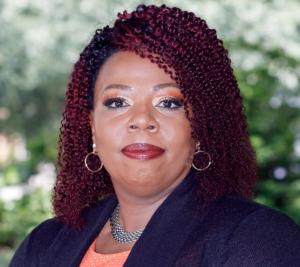
About a year ago I was teaching a Greek class where we were translating Paul’s short letter to Philemon. I mentioned the idea that States could use the Fugitive Slave Act of 1850 in order to curtail the rights of women to travel across state lines to secure an abortion. In case you are not aware, friends, the Fugitive Slave Act of 1850 criminalized any provision of aid or sanctuary to escaped enslaved individuals. And I was not just making it up. There are articles both in newspapers and legal journals to document my reference.[i]Unbeknownst to me, a student took issue with my statement and decided to correct me. However, they did not correct me during the class period and they did not correct me by scheduling a time to meet with me. Neither did the student decide to send me an e-mail. The student decided to send an e-mail to all of the White students in the classroom. The student did not send the e-mail to any of the Black students in the classroom. As you can probably discern from the title of this blog, the e-mail began with “I love Dr. Parker but. . . .” Of course, one of my students sent the e-mail to me and we had to process it during the next class period which, of course, was not part of my lesson plan nor a part of my syllabus.In the e-mail, the student indicated that it is ridiculous to imagine that states’ rights could supersede the rights of unrestricted travel for US citizens, regardless of whether one leaves the state for an abortion or vacation. The e-mail then went on to state that “Statistics show that for every one white abortion there are five to six black abortions. Black persons should view abortion as a white man’s way of trying to limit the population of blacks in the United States.” The tone was almost as if Black people should be grateful that White Republicans (this person identified as Republican in the e-mail) loved them so much that they were trying to stop abortions.There are two predominant ways to think about love paternalism and both come through Pauline literature. The first is the idea of a love that gives up rights. This stems from Paul’s use of the terms the weak and the strong. The idea is that the strong give up their right to do something if that thing, in fact, causes the weak to stumble. The classic example is in the case of meat sacrificed to idols in 1 Corinthians 8-10. A contemporary example can be found in the idea of men telling woman to cover up themselves in case they arouse a man’s sexual interest and suffer a rape. This is an instance of victim-blaming and leaves the onus on a woman instead of arguing that a man should actually have self-control.[ii]Another aspect of love paternalism involves limiting someone’s autonomy and freedom for their own good. I see this idea particularly in the student’s statement that Black persons should view abortion as a white man’s way of trying to limit the population of blacks in the United States. Throughout history White people do whatever they can to justify their understanding of why they mistreat Black people. For example, during the transatlantic slave trade, slaveowners and traders justified trafficking enslaved persons by saying that they were introducing them to the gospel.What should the African American female professor’s response be when love paternalism smacks her in the face in the midst of a semester when she is teaching Greek? Of course, she must confront it head-on and be able to maneuver and be nimble right in the middle of the semester. Pedagogically, I table any theological discussion during Greek translation because the focus during that particular time is on morphology and syntax within the text. However, in this instance I did allow a moment to discuss the e-mail and then connect it to the manipulative ways in which Paul’s rhetoric shows up in the letter to Philemon. We tackled the e-mail through power dynamics. We also had to have a frank discussion on why the student only sent the e-mail to White students.Bottom line: Openness, frank discussions, and nimbleness are required when love paternalism unexpectedly affronts a professor. I do not know if my White colleagues experience such moments in the classroom. However, you never know what your minoritized colleagues are going through when we are teaching our classes, so please be kind. Notes & Bibliography[i] See Angela N. Parker. “You Can’t Pay Back What You Never Owned: A Conversation on Reparations and Paul’s Letter to Philemon,” in Reparations and the Theological Disciplines: Prophetic Voices for Remembrance, Reckoning, and Repair, ed. M. Barram, D.G.I. Hart, G. Kettering, and M.J. Rhodes, (Lexington Books/Fortress Academic, 2023), 91-104. https://www.thenation.com/article/society/abortion-missouri/; https://www.law.georgetown.edu/gender-journal/online/volume-xxiii-online/legal-vigilantism-a-discussion-of-the-new-wave-of-abortion-restrictions-and-the-fugitive-slave-acts/.[ii] See Roger E. Olson, Whatever Happened to the Christian Principle of “Love Paternalism?” (Newstex, 2019).

Below is the jargon which has pervaded our conversation. I call this the “re-” lexicon:re-designre-inventre-arrangere-imaginere-createre-thinkre-conceivere-examinere-visionre-considerre-workre-coverThe call to “re-” the system of education has been in response to shrinking student pools, dwindling tenure-track positions, collapsing denominational structures, tightening budgets, rising awareness of student debt, curriculum misalignment, and the mounting backlog of deferred maintenance on aging buildings. Even before the shift in the federal government’s relationship to education, theological education needed an overhaul. The list of words entered our discussion but their potential nor their aspiration has not been fully realized.Many schools have taken on the task of rethinking their institutions – most in reaction to crisis. Many of the “re” processes assumed that what has served well should be mended, fixed and pressed back into service. Administrators, in planning institutional changes, started with strategies to restore what had served admirably in the past. Many schools rethought their curriculum for existing degree programs, added certificated programs, replaced tenured faculty positions with the hire of contingency faculty, sold land, increased their endowment draw down, and hoped for increased student enrollment. These strategies, depending upon the context, have had a modicum of success. Indeed, some vulnerable schools have prolonged their demise. Other schools are announcing downsizing and closings. Our attempt at “re” is faltering.Not only have leaders failed to figure out a way to revitalize theological education as an enterprise, the patched-together strategies are likely not to be sustainable 5, 10, 20 years into the future. There is palpable fear that given the new realities of the digital age’s influence on teaching, exacerbated by the lack of crisis management skills of deans and presidents, schools will not accomplish the hoped for “reset” in theological education.We are confounded. Yet, we are persuaded.Theological leaders are convinced that our society—now and into the future—is better with a vibrant and thriving theological education enterprise. Leaders believe that the societal need for educated faith leaders—clergy and laity—has increased and will continue to grow. We believe theology and religion will prove more, not less, relevant in the digital age. We know that the church as well as all forms of organized religion are the major stakeholders in theological education. Our work is paramount—if only we can figure out how to craft new, accessible systems.Given the severity of the situation, what if it is ultimately detrimental to repair or restore our current paradigms of education? What if fixing the current system is tantamount to patching bicycle tires only to return to riding on nail-riddled roads? From my vantage point, our challenge, rather than repairing the current, is to let go of the past. We must freshly build, compose, make, and design news systems of theological education based upon a future we do not know but that is coming quickly.What if the solutions lie in building new systems from scratch? What would it mean to compose brand new approaches to educational needs? How can we fashion new pedagogical apparatuses? What would it take to manufacture the new and the needed educational models?Leaders have, in the past, relied on institutional traditions and strategic planning. Those tools were helpful, but no longer sufficient. Now is the time for a creative process. We must ask ourselves not about repair and retrench, but about the new. What new - that is yet to be realized -will be the very thing to produce the next educational system?This is not a call to be creative as much as it is a call to create.[caption id="attachment_253985" align="alignleft" width="300"] Najee Dorsey (BAIA) Nancy Lynne Westfield and Rachel Mills (Wabash Center)[/caption]The Wabash Center has partnered with Najee Dorsey. An exquisite artist in his own right, Najee is the founder of Black Art in America (BAIA). Under Najee’s leadership, BAIA is a community art gallery and garden dedicated to teaching art, creativity, and artist advocacy. BAIA hosts our cohort groups as part of an effort to expose our faculty to artists, the creative process, and imagination. Najee and the artist colleagues guide scholars in future-building ways of thinking. Participants engage directly with artists about their work and lives—as creators, producers, and visionaries. At BAIA, scholars encounter colleagues whose careers are devoted to building and making. The shift from being creative to becoming a creator requires tactile, embodied learning. Najee knows this terrain.In the conversations between the BAIA artists and our participants, I have noticed consistent themes in the conversations. Artists wake up each day with the question of What am I going to create? in the forefront of their minds, then align their schedule to accommodate time for creating. Creatives are not afraid to be wrong or make mistakes. We must consider that unless educational systems celebrate rather than stigmatize risk-taking, failure, and experimentation, no new systems will emerge. A creative process causes you to change what you can see and challenge what you have previously seen. Creatives do not believe dreams are ancillary to the process. They embrace visions, daydreams, visitations, nightmares, wishes and messages from earth, wind, fire and water. They inhabit many worlds. What would it take for us to, collectively, think in these modes and frames?Exposing theology and religion colleagues to the profound understandings of artists, artists’ lifestyles, as well as providing colleagues with a glimpse of the creative process is a way that the Wabash Center is championing the need for leaders in education to build, craft, make a new paradigm of theological education that is original and sustainable.I do not believe the future of theological education to be condemned nor foreclosed. Our future is, however, dependent upon our willingness and understanding that the new is needed and that we must, together, create the new if it is to exist. Who among us has the guts to proceed?ReflectionWhat would it mean to use the creative process to design and build new educational structures?What would it take to collaborate with artists in developing new educational structures?In your context, who are the conversation partners for the shift in mindset to a lifestyle and daily practice of building, composing, and making?
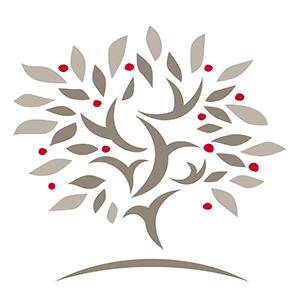
Welcome to the Common Questions, an exciting initiative brought to you by the Wabash Center for Teaching and Learning in Theology and Religion. In this series, we bring together some of the most esteemed scholars and educators in the field to engage with a central, thought-provoking question. The goal is to challenge and inspire. By exploring these questions, we hope to create a dynamic platform for scholarly dialogue, illuminate complexities in education, and enhance our understanding of the transformative power of teaching and learning in these vital disciplines. Featuring a diverse range of perspectives, this effort is a means of expanding the borders of academic rigor with profound spiritual and philosophical inquiry.This time, we asked…“We are all born with medicine inside of us: unique traits and attributes that contribute to healing humanity on this planet. How is your medicine utilized in your teaching?”Gathered here are responses from:Kristina Lizardy-Hajbi, Iliff School of TheologyRebecca Makas, Villanova UniversityCarol B. Duncan, Wilfrid Laurier UniversityHaruka Umetsu Cho, Santa Clara UniversityMolly Greening, Loyola University ChicagoLaura Carlson Hasler, Indiana UniversityFred Glennon, Le Moyne CollegeIf you are interested in sharing you response to this prompt or future Common Questions, please reach out to our blogs editor, Donald E. Quist at quistd@wabash.edu.